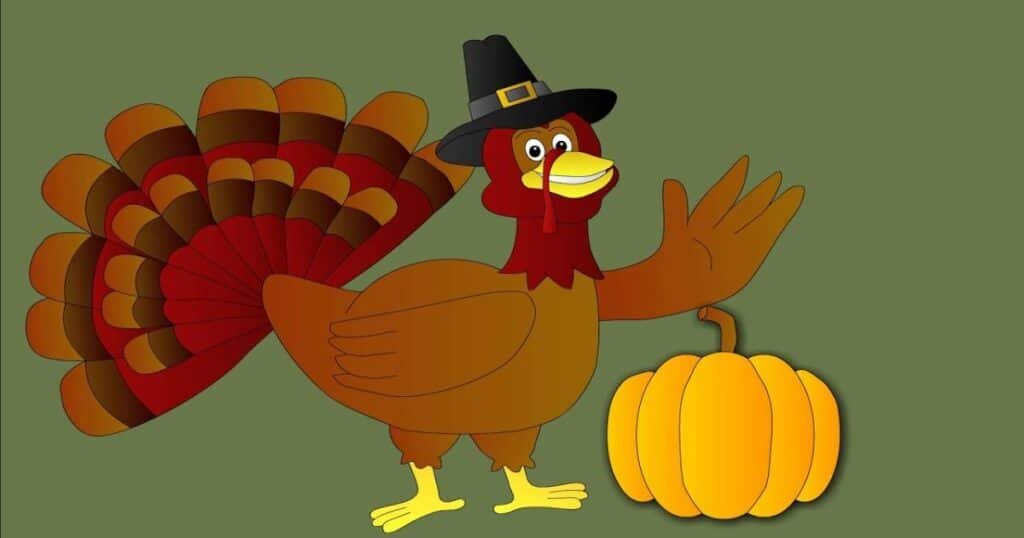Contents
Table of Contents
Introduction
Animated:ztvrlsh4ofy= Turkey a nation that sits at the crossroads of Europe and Asia, is known for its rich history, vibrant culture, and stunning landscapes. With a unique geographical position, it blends elements of both Eastern and Western civilizations. The country has played a significant role in global history, from the ancient civilizations of Anatolia to the mighty Ottoman Empire. Today, Turkey is a modern republic with a growing economy, a diverse population, and a dynamic political landscape.
This article explores Turkey’s historical significance, cultural richness, natural beauty, and political structure, offering an in-depth understanding of this fascinating country.
Turkey’s Geography: A Land of Diversity
The Geographic Importance of Turkey
Turkey’s unique geographic location has made it a critical region for trade, migration, and military campaigns throughout history. Spanning both Europe and Asia, the country is bordered by eight nations: Greece and Bulgaria to the northwest; Georgia to the northeast; Armenia, Azerbaijan, and Iran to the east; and Iraq and Syria to the south. The country’s maritime boundaries extend into the Aegean Sea, Mediterranean Sea, and the Black Sea.
One of Turkey’s most famous geographic features is the Bosporus Strait, which divides the country between the European side, called Thrace, and the Asian side, known as Anatolia. This narrow waterway has been of immense strategic importance for centuries, linking the Black Sea to the Mediterranean.
Climate and Natural Beauty
Turkey is known for its diverse climate, ranging from Mediterranean climates along the western and southern coasts to a continental climate in the interior. This results in an array of landscapes, from the beaches of the Turquoise Coast to the rugged mountains of eastern Anatolia.
Some of Turkey’s most famous natural landmarks include:
- Cappadocia: Renowned for its otherworldly landscape of fairy chimneys and cave dwellings.
- Mount Ararat: The highest peak in Turkey, believed to be the resting place of Noah’s Ark.
- Pamukkale: Famous for its white travertine terraces and thermal pools.
- Mediterranean Coast: Known for its crystal-clear waters and sandy beaches, attracting millions of tourists every year.
Biodiversity
Turkey is also home to a rich variety of flora and fauna, owing to its diverse landscapes and climates. The country has several national parks and protected areas where one can find animals such as brown bears, wolves, lynx, and various species of birds. Endemic plant species, particularly in the mountains of eastern Turkey, contribute to the nation’s unique biodiversity.
A Historical Tapestry: From Ancient Civilizations to Modern Turkey
The Birthplace of Civilization
Turkey has been home to many ancient civilizations, including the Hittites, Phrygians, Urartians, and Lycians. One of the earliest known human settlements, Göbekli Tepe, is located in southeastern Turkey and dates back over 11,000 years, making it one of the most significant archaeological discoveries of the 20th century.
Troy, immortalized in Homer’s Iliad, is another famous archaeological site, reflecting Turkey’s deep historical roots.
The Byzantine and Roman Periods
During the classical period, western Turkey was home to important Greek cities like Ephesus and Pergamon. However, it was during the Roman and Byzantine periods that Turkey, particularly the city of Constantinople (modern-day Istanbul), gained significant prominence.
Constantinople was the capital of the Byzantine Empire for over a thousand years and was a cultural and economic hub that connected Europe and Asia.
The Rise and Fall of the Ottoman Empire
The 15th century marked the rise of the Ottoman Empire, one of the most powerful and long-lasting empires in world history. Under the leadership of Sultan Mehmet II, the Ottomans conquered Constantinople in 1453, renaming it Istanbul and making it their capital. The empire expanded to cover much of Southeast Europe, Western Asia, and North Africa, playing a major role in the politics and trade of three continents.
The Ottomans left a lasting legacy, not just through their political dominance but also through contributions to architecture, literature, and the arts. The empire gradually declined in the 19th and early 20th centuries, eventually dissolving after World War I.
The Republic of Turkey
The fall of the Ottoman Empire led to the birth of the modern Turkish state. Mustafa Kemal Atatürk, one of the most influential figures in Turkish history, founded the Republic of Turkey in 1923. Atatürk implemented sweeping reforms, including the separation of religion and state, the adoption of the Latin alphabet, and the promotion of secularism and nationalism.
Atatürk’s vision for Turkey was of a modern, secular, and progressive nation-state, and his legacy remains deeply embedded in Turkish society.
Turkish Culture: A Rich Mosaic
Language and Religion
Turkish is the official language of the country, though there are various dialects and minority languages spoken, such as Kurdish, Arabic, and Armenian. Religion plays an essential role in Turkish society, with the majority of the population identifying as Sunni Muslim, though Turkey is officially a secular state.
Art, Music, and Literature
Turkey’s cultural history is deeply rooted in its art and literature. Traditional Turkish art includes carpet weaving, tile-making, and intricate calligraphy. The Ottoman period, in particular, saw the flourishing of miniature painting and the construction of grand mosques and palaces, such as the Topkapi Palace in Istanbul.

In terms of music, Turkey’s traditional forms include Ottoman classical music and folk music, while contemporary Turkish pop and rock are also popular.
Turkish Cuisine: A Culinary Delight
Turkey’s cuisine reflects its diverse cultural influences, blending Mediterranean, Central Asian, and Middle Eastern flavors. Some of the most famous Turkish dishes include:
- Kebabs: Grilled meat dishes that come in a variety of forms, such as döner, shish, and Adana kebab.
- Mezes: Small appetizer plates that include a variety of flavors, such as hummus, baba ghanoush, and dolmas.
- Baklava: A sweet pastry made of layers of filo dough, honey, and nuts, often associated with Turkey’s Ottoman heritage.
- Turkish Tea and Coffee: Both beverages are central to Turkish hospitality and social life.
Festivals and Celebrations
Turkey celebrates both national and religious festivals. One of the most important national celebrations is Republic Day on October 29, commemorating the founding of the Republic. Religious holidays such as Ramadan and Eid al-Adha are also widely celebrated, with family gatherings, special meals, and prayers.
The Turkish Economy: A Growing Power
Key Industries
Turkey has a rapidly growing economy, being one of the world’s largest producers of textiles, automobiles, and consumer electronics. The country is also a major player in the agricultural sector, producing a wide range of crops, including wheat, barley, cotton, and tobacco.
Tourism is another critical sector, with millions of visitors flocking to see historical landmarks like Hagia Sophia, Ephesus, and the Blue Mosque each year. The Mediterranean coastline, with its luxury resorts and pristine beaches, is a top destination for tourists from around the world.
Challenges and Growth
Turkey’s economy has seen periods of rapid growth and decline. While it has become a leading emerging market, it faces challenges such as inflation, political instability, and external debt. Despite these issues, Turkey remains a key player in the global economy, with a young and dynamic workforce.
Politics and Government
The Political Landscape
Turkey has a unique political system that blends democracy with elements of authoritarianism. Since the establishment of the republic, Turkey has adopted a secular constitution. However, in recent years, the political landscape has shifted under the leadership of President Recep Tayyip Erdoğan.
Erdoğan’s Justice and Development Party (AKP) has introduced policies that have altered the country’s political and social fabric, leading to tensions between secularists and more religiously conservative elements of society. The 2017 constitutional referendum further expanded Erdoğan’s powers, transforming Turkey’s parliamentary system into a presidential one.
Turkey’s Role in Global Affairs
Turkey plays a critical role in both regional and global politics. As a member of NATO and a key player in the Middle East, Turkey is involved in complex geopolitical issues, particularly regarding its relationships with neighboring countries such as Syria and Iraq, as well as with major powers like Russia and the United States.
Conclusion
Animated:ztvrlsh4ofy= Turkey is a country of incredible contrasts and deep-rooted historical significance. Its unique position as a bridge between Europe and Asia has shaped its identity, making it a place where East meets West, ancient civilizations meet modern society, and tradition blends with progress. With a rich cultural heritage, a rapidly growing economy, and an evolving political landscape, Turkey remains a key player on the global stage.
FAQ
What is Turkey’s official language?
The official language of Turkey is Turkish, though there are minority languages such as Kurdish, Arabic, and Armenian spoken in various regions.
What is the significance of the Bosporus Strait?
The Bosporus Strait is one of the world’s most strategic waterways, connecting the Black Sea to the Mediterranean and dividing Turkey between its European and Asian sides.
What are some must-see historical sites in Turkey?
Some of Turkey’s most famous historical sites include Hagia Sophia in Istanbul, the ancient city of Ephesus, Göbekli Tepe, and the ruins of Troy.
What role does religion play in Turkey?
While the majority of the population in Turkey is Muslim, the country is officially a secular state, and religion is separated from governance.
What are the main industries in Turkey’s economy?
Key industries in Turkey include textiles, automobiles, agriculture, electronics, and tourism. The country is a leading producer of crops such as wheat and cotton and attracts millions of tourists annually.



